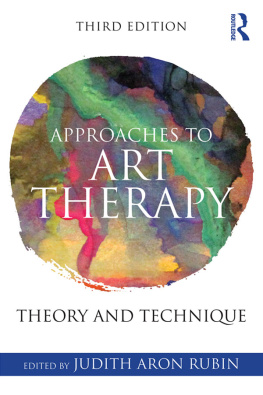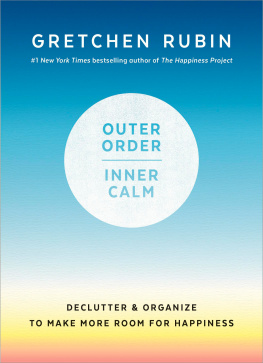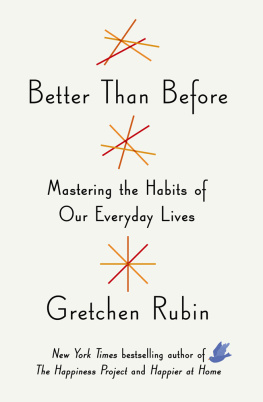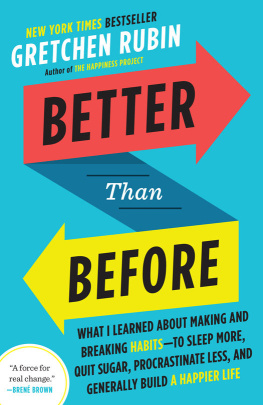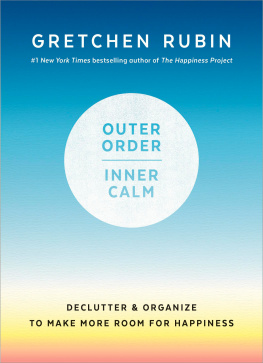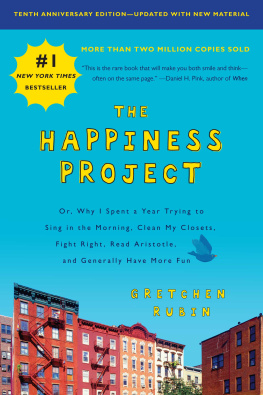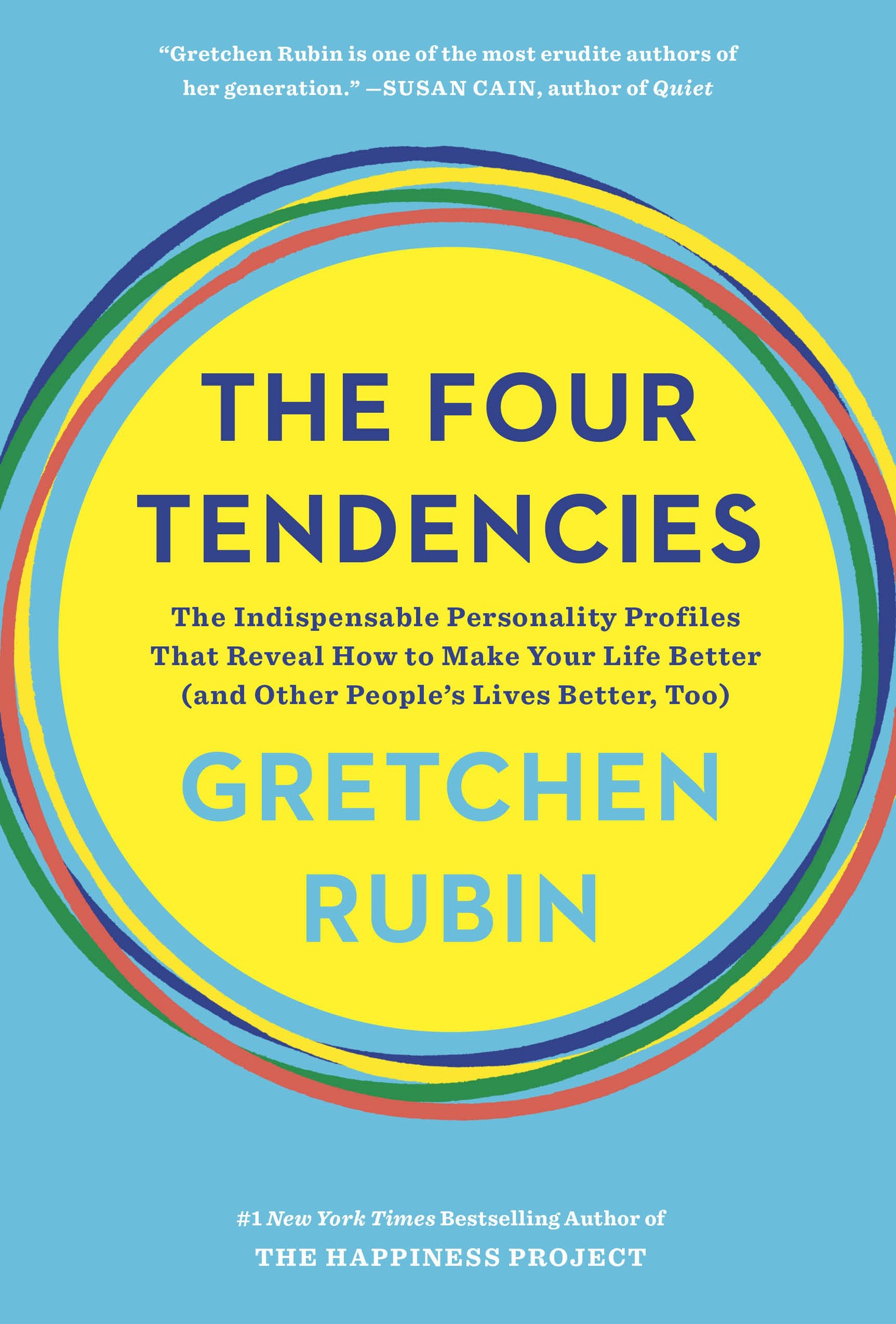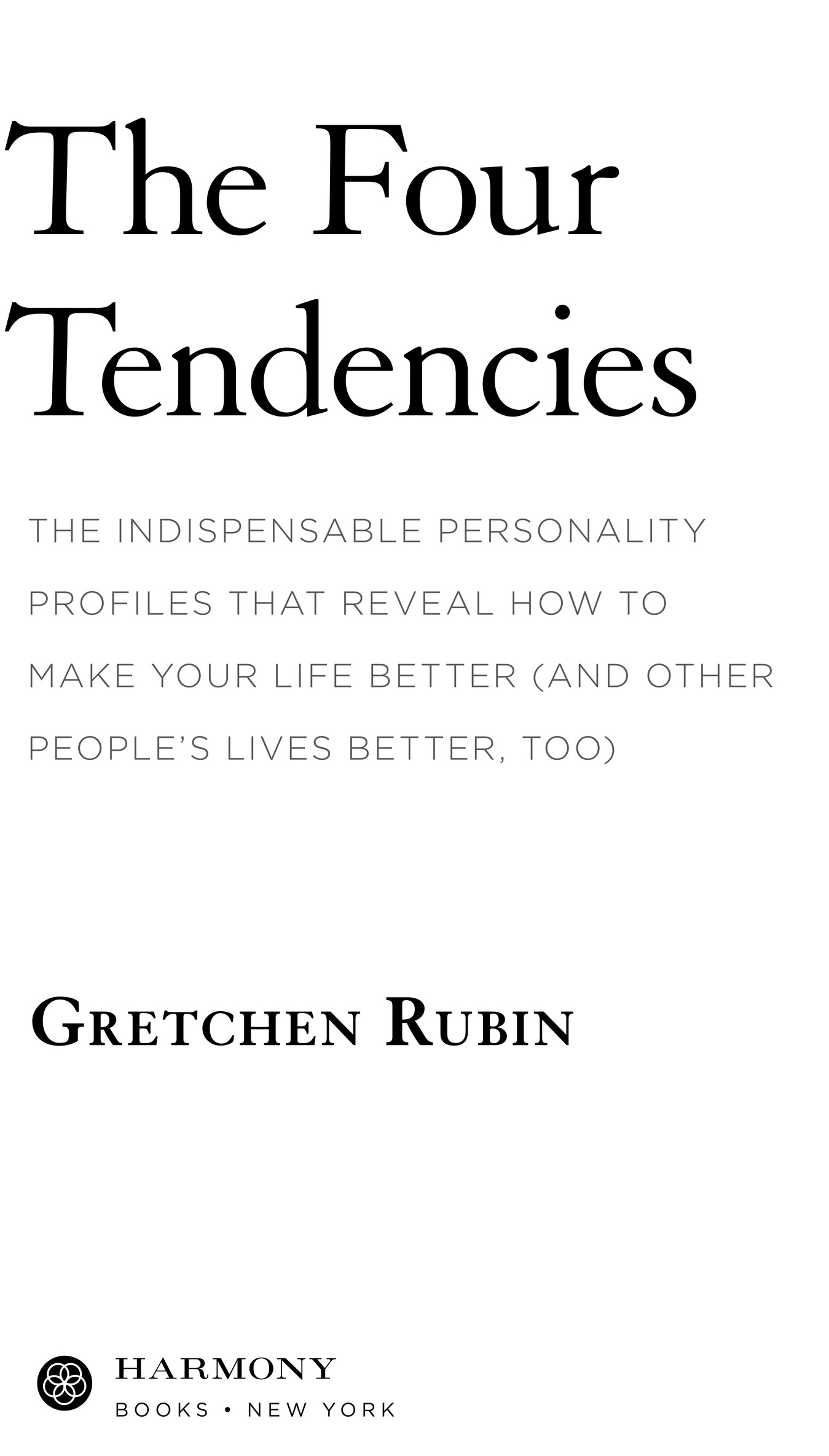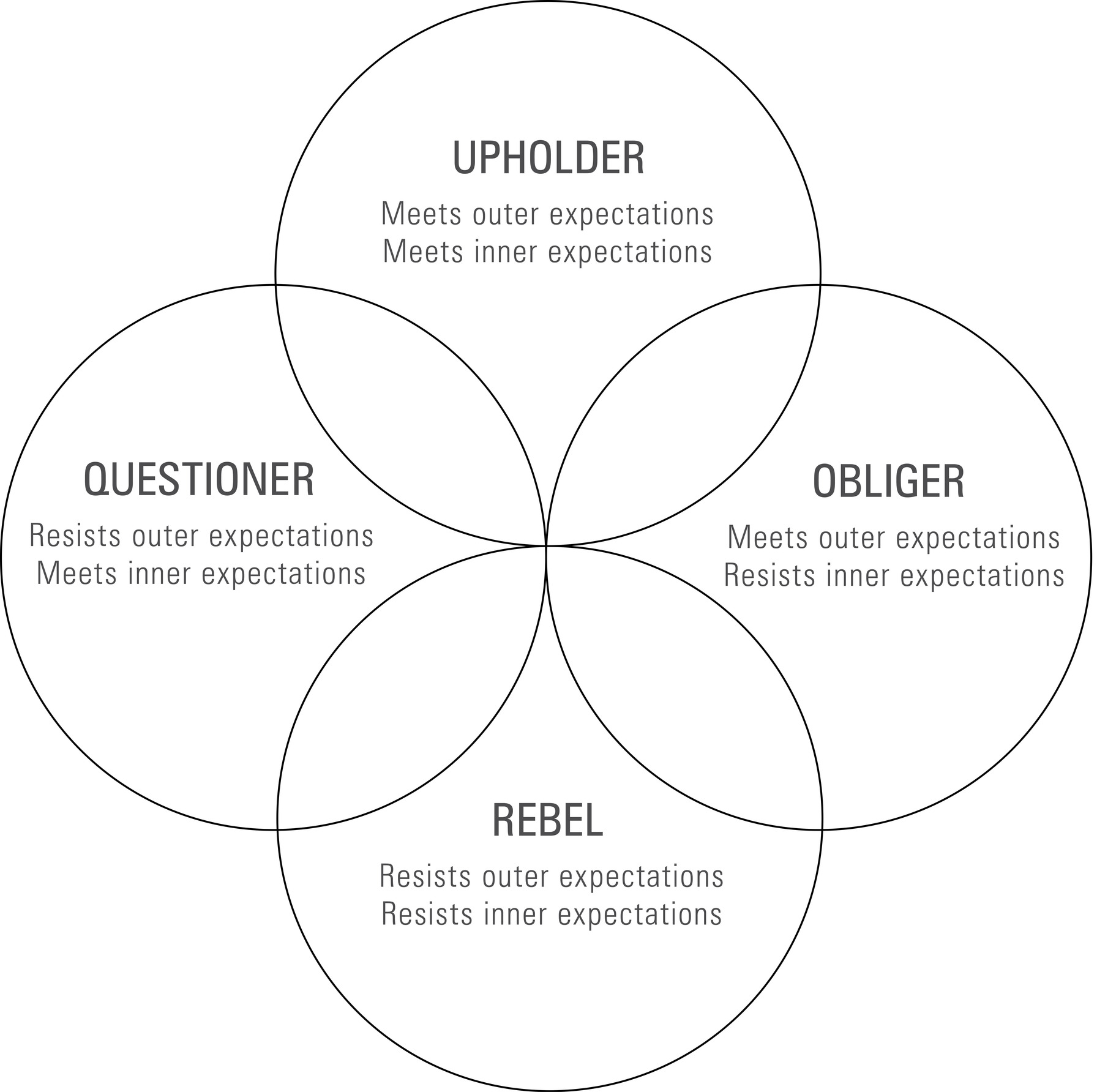Praise for The Four Tendencies
The greatest predictor of growth and happiness is actionable self-knowledge. Gretchen Rubin gives you the tools to not only understand yourself and others, but what to do with that knowledge. Insightful, practical, and crucial, The Four Tendencies will help you overcome the biggest impediments to your happiness and success.
Shawn Achor (Upholder), author of The Happiness Advantage and Before Happiness
Gretchen Rubin has discovered a new framework for understanding ourselves and other people. When we know our Tendency, we can manage ourselves more effectively and reach our goals fasterand we can help others to do that, as well. As a researcher who has studied habits, addiction, and change for twenty years, Im excited by the simplicity and power of The Four Tendencies as a tool for anyone seeking to make his or her life better. I am implementing this in my clinical programs to help people understand their Tendencies so they can change behaviors, such as stress and emotional eating.
Judson Brewer, MD, PhD (Questioner), author of The Craving Mind and associate professor in medicine and psychiatry at the University of Massachusetts Medical School
Gretchen Rubins groundbreaking Four Tendencies framework is a simple yet deeply-researched and powerful tool that helps us better recognize our own nature, harness its strengths, and counteract its weaknesses. With her trademark wit and insight, Gretchen gives us the tools to create the life we want, in a way thats right for us. The surprising thing? Once you know about these four types, you see them everywhere.
Susan David, PhD (Upholder), cofounder of the Institute of Coaching and author of Emotional Agility
If you want to change anything in your life, you need Gretchen Rubin. Her ideas are original, instinctive, and revolutionary. Whether you want to get fitter, work smarter, or be tidier, she shows you how to tweak your habits (almost) effortlessly. This Rebel sleeps better, deletes more email, is more than forty pounds lighter, and forever in her debt.
Viv Groskop (Rebel), journalist and comedian
I love Gretchen Rubin and she helps me understand both myself and the people around me.
Cathy Rentzenbrink (Obliger), author of The Last Act of Love
A LSO BY G RETCHEN R UBIN
Better Than Before
Happier at Home
The Happiness Project
Forty Ways to Look at JFK
Power Money Fame Sex: A Users Guide
Profane Waste (with Dana Hoey)
Copyright 2017 by Gretchen Rubin
All rights reserved.
Published in the United States by Harmony Books, an imprint of the Crown Publishing Group, a division of Penguin Random House LLC, New York.
crownpublishing.com
Harmony Books is a registered trademark, and the Circle colophon is a trademark of Penguin Random House LLC.
Library of Congress Cataloging-in-Publication Data has been applied for.
ISBN9781524760915
Ebook ISBN9781524760922
International Edition ISBN9781524762414
Cover design by Jennifer Carrow
v4.1
ep
For Christy Fletcher (Questioner)
Contents
The Origin of the Four Tendencies How the Tendencies Weave Throughout Our Characters Why Its Helpful to Identify Our Own Tendency Why Its Helpful to Identify Others Tendencies
2: Identify Your Tendency
Take the Four Tendencies Quiz
3: Understanding the Upholder
Do whats right even when people call you uptight
Strengths Weaknesses Variations Within the Tendency Why Upholders Have an Instinct for Self-preservation How Upholders Can Manage Upholder Tightening Why Upholders Must Articulate Their Inner Expectations
4: Dealing with an Upholder
Just do it
Work Spouse Child Health Client Choosing a Career
5: Understanding the Questioner
But why?
Strengths Weaknesses Variations Within the Tendency Why Questioners Dislike Being Questioned How Questioners Can Master Analysis-Paralysis How Questioners Can Meet Unjustified Expectations by Finding Their Own Justifications
6: Dealing with a Questioner
Why do we need a motto?
Work Spouse Child Health Client Choosing a Career
7: Understanding the Obliger
Ill do anything you ask. Until I wont.
Strengths Weaknesses Variations Within the Tendency How Obligers Can Meet Inner Expectations by Creating Outer Accountability When Outer Accountability Disappears How Obligers Can Manage the Pros and Cons of the Tendency How Obligers Shift the Line Between Outer and Inner Expectations How to Understand and Protect Against Obliger-Rebellion
8: Dealing with an Obliger
Say yes to less
Work Spouse Child Health Client Choosing a Career
9: Understanding the Rebel
Its so hard when I have to, and so easy when I want to
Strengths Weaknesses Variations Within the Tendency How Others Can Influence Rebels to Meet an Expectation How Rebels Can Influence Themselves to Meet an Expectation Why Rebels May Be Drawn to Lives of High Regulation
10: Dealing with a Rebel
Youre not the boss of me
Work Spouse Child Health Client Choosing a Career
Finally I am coming to the conclusion that my highest ambition is to be what I already am.
Journal of Thomas Merton (Rebel)
1
The Four Tendencies
The Origin of the Four Tendencies How the Tendencies Weave Throughout Our Characters Why Its Helpful to Identify Our Own Tendency Why Its Helpful to Identify Others Tendencies
I didnt realize it at the time, but when I walked through the door of the Atlantic Grill restaurant one blustery winter afternoon, I was heading to one of the most significant conversations of my life.
As I bit into my cheeseburger and my friend picked at her salad, she made a comment that would occupy my mind for years. In an offhand way, she mentioned, I want to get myself in the habit of running, but I cant, and it really bothers me. Then she added, in a crucial observation, When I was on the high school track team, I never missed track practice, so why cant I go running now?
Why? I echoed.
Well, you know, its so hard to make time for ourselves.
Hmmm, I said.
We started talking about other things, but even after wed said good-bye, I couldnt stop thinking about our exchange. She was the same person shed been in high school, and she was aiming to do the same activity. Shed been able to go running in the past, but not now. Why? Was it her age, her motivation, her family situation, the location, team spirit, or something else?
She assumed that we all have trouble making time for ourselves. But actually I dont have any trouble making time for myself. How were she and I different from each other?
I would spend the next few years trying to answer these questions.
The Origin of the Four Tendencies
They say there are two kinds of people in the world: those who divide the world into two kinds of people, and those who dont.







